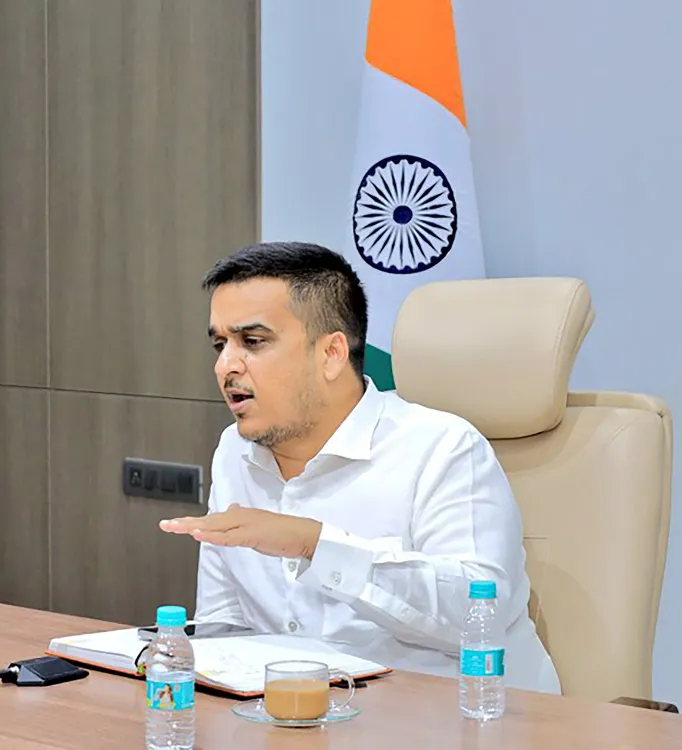Are Drones and Firecrackers Banned in Gujarat Due to India-Pakistan Tensions?

Synopsis
Key Takeaways
- Gujarat government enforces a ban on drones and firecrackers.
- Measures are in response to tensions between India and Pakistan.
- Public cooperation is crucial for maintaining security.
- Prime Minister Narendra Modi is monitoring the situation closely.
- Maritime security protocols are being elevated nationwide.
Gandhinagar, May 9 (NationPress) The Gujarat government has implemented rigorous preventive measures throughout the state in response to the escalating tensions between India and Pakistan. A comprehensive ban has been enforced on the usage of drones and firecrackers at all public and private gatherings until May 15, as part of the enhanced security protocols.
Authorities are urging residents to adhere to official guidelines and support law enforcement, as stated by Gujarat Home Minister Harsh Sanghavi on Friday. With a state of heightened alert declared in border districts such as Banaskantha and Patan, the government has made it clear that no permissions will be issued for the operation of drones or firecracker displays during any events or celebrations until mid-May.
In parallel, the neighboring state of Rajasthan has also heightened its security measures.
In Jaisalmer and other sensitive locations, a similar ban has been enacted. Furthermore, Mount Abu will experience a partial blackout on May 9 and 10 between 7 p.m. and 8 p.m.
Tourists, particularly those from Gujarat and adjacent states, are encouraged to return to their accommodations prior to the blackout and to keep their lights off during the specified hour. Prime Minister Narendra Modi has also reviewed the security conditions with Gujarat Chief Minister Bhupendra Patel in a phone conversation.
Detailing the discussion on the social media platform X, the Chief Minister noted that the Prime Minister was briefed on the state’s readiness as a border area and provided with essential guidance regarding the ongoing cross-border tension.
As precautionary blackouts are being observed in districts such as Kutch and Banaskantha, officials have reiterated the importance of public vigilance and strict compliance with security advisories.
In addition, the Directorate General of Shipping (DGS) has mandated all Indian ports, terminals, and vessels to promptly elevate their maritime security protocols from MARSEC Level-1 to MARSEC Level-2.
This directive, issued in response to a national advisory, is part of a broader strategy to fortify defenses against potential maritime threats in the region. Under the new order, all ports, terminals, and shipyards are required to implement heightened security measures under the International Ship and Port Facility Security (ISPS) Code, advancing their security posture to Level 2.
This action reflects growing concerns regarding possible risks to India's maritime infrastructure amidst rising tensions. Furthermore, all Indian-flagged vessels operating within the Indian subcontinent and surrounding waters have been instructed to raise their security levels correspondingly and follow the protocols outlined in their Ship Security Plans (SSP).










